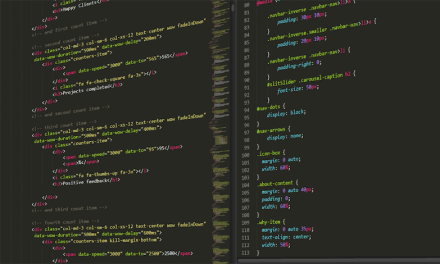Table of Contents
“Boosting spirits from afar: Keeping remote teams connected and motivated during challenging times.”
Introduction
Introduction:
Maintaining Morale: Strategies for Keeping Remote Employees Engaged during the COVID-19 Outbreak
During these challenging times of the COVID-19 outbreak, many companies have transitioned to remote work to ensure the safety and well-being of their employees. However, managing remote teams comes with its own set of challenges, particularly when it comes to maintaining morale and keeping employees engaged. In this article, we will explore strategies and best practices for effectively managing remote teams and ensuring that employees remain motivated, connected, and productive during this unprecedented time.
Virtual Team Building Activities
As the COVID-19 outbreak continues to impact businesses around the world, many organizations have shifted to remote work to ensure the safety of their employees. While working from home offers flexibility and convenience, it can also present challenges when it comes to maintaining morale and keeping employees engaged. Virtual team building activities have become an essential tool for organizations looking to foster a sense of community and connection among remote employees.
One of the key strategies for keeping remote employees engaged is to prioritize communication and collaboration. Virtual team building activities can help facilitate communication and strengthen relationships among team members who may not have the opportunity to interact face-to-face. By creating a sense of camaraderie and teamwork, these activities can help boost morale and productivity among remote employees.
One popular virtual team building activity is the use of online games and challenges. These activities can range from virtual escape rooms to trivia contests, and can be a fun and engaging way for remote employees to connect and work together towards a common goal. By incorporating elements of competition and teamwork, online games can help foster a sense of camaraderie and collaboration among remote team members.
Another effective strategy for keeping remote employees engaged is to schedule regular virtual team meetings and check-ins. These meetings provide an opportunity for team members to connect, share updates, and discuss any challenges or concerns they may be facing. By creating a regular cadence of communication, organizations can help ensure that remote employees feel supported and connected to their colleagues.
In addition to virtual team meetings, organizations can also incorporate virtual team building activities into their regular schedule. For example, virtual happy hours or coffee breaks can provide a casual and relaxed setting for remote employees to socialize and connect with their colleagues. These informal gatherings can help foster a sense of community and camaraderie among remote team members, and can help boost morale and engagement.
It’s also important for organizations to recognize and celebrate the achievements of their remote employees. Virtual team building activities such as virtual awards ceremonies or recognition programs can help highlight the hard work and dedication of remote team members. By acknowledging and rewarding their contributions, organizations can help boost morale and motivation among remote employees.
Overall, maintaining morale and keeping remote employees engaged during the COVID-19 outbreak requires a proactive and strategic approach. By prioritizing communication, collaboration, and recognition, organizations can help foster a sense of community and connection among remote team members. Virtual team building activities can play a key role in achieving these goals, and can help ensure that remote employees feel supported, engaged, and connected to their colleagues.
Regular Check-ins and Communication
In the wake of the COVID-19 outbreak, many companies have transitioned to remote work in order to prioritize the health and safety of their employees. While this shift has been necessary, it has also presented new challenges for managers and team leaders in maintaining morale and keeping remote employees engaged. One key strategy for addressing this challenge is regular check-ins and communication.
Effective communication is essential in any work environment, but it becomes even more crucial when employees are working remotely. Without the benefit of face-to-face interactions, it can be easy for remote workers to feel isolated and disconnected from their colleagues. Regular check-ins provide an opportunity for managers to touch base with their team members, offer support, and ensure that everyone is on the same page.
There are several ways to approach regular check-ins with remote employees. One option is to schedule weekly or bi-weekly one-on-one meetings with each team member. During these meetings, managers can discuss work progress, address any concerns or challenges, and provide feedback on performance. This individualized attention can help remote employees feel valued and supported, even when they are not physically present in the office.
In addition to one-on-one meetings, team leaders can also hold regular team meetings to keep everyone connected and informed. These meetings can be conducted via video conferencing platforms such as Zoom or Microsoft Teams, allowing team members to see each other and engage in real-time discussions. Team meetings provide an opportunity for employees to share updates on their work, collaborate on projects, and maintain a sense of camaraderie despite physical distance.
In addition to formal check-ins, managers can also maintain open lines of communication with remote employees through other channels such as email, instant messaging, or phone calls. Encouraging employees to reach out with questions or concerns, and responding promptly, can help foster a sense of trust and transparency within the team. Regular communication also helps to prevent misunderstandings and ensure that everyone is aligned on goals and expectations.
When conducting check-ins with remote employees, it is important for managers to be mindful of their communication style. Remote workers may already be feeling isolated or overwhelmed, so it is important to approach these conversations with empathy and understanding. Managers should listen actively, show appreciation for their team members’ efforts, and offer support and encouragement when needed.
In conclusion, regular check-ins and communication are essential strategies for keeping remote employees engaged and motivated during the COVID-19 outbreak. By maintaining open lines of communication, providing support and feedback, and fostering a sense of connection within the team, managers can help remote employees feel valued and connected despite physical distance. Effective communication is the key to maintaining morale and productivity in a remote work environment, and it is essential for the success of any remote team.
Recognition and Rewards

Recognition and rewards are essential components of maintaining morale and keeping remote employees engaged during the COVID-19 outbreak. With the sudden shift to remote work, many employees may be feeling disconnected and isolated from their colleagues and the organization as a whole. Recognizing and rewarding employees for their hard work and dedication can help boost morale, increase motivation, and foster a sense of belonging and appreciation.
One effective strategy for recognizing remote employees is to implement a formal recognition program. This program can include regular shout-outs during team meetings, virtual awards ceremonies, or personalized thank-you notes from managers. By publicly acknowledging employees’ contributions and achievements, organizations can show their appreciation and reinforce positive behaviors.
In addition to formal recognition programs, organizations can also offer rewards to remote employees as a way to show appreciation for their hard work. Rewards can come in many forms, such as gift cards, extra paid time off, or even virtual experiences like online cooking classes or fitness sessions. By offering rewards, organizations can incentivize employees to continue performing at a high level and demonstrate that their efforts are valued.
Another effective strategy for recognizing and rewarding remote employees is to provide opportunities for professional development and growth. This can include offering virtual training sessions, workshops, or seminars that help employees enhance their skills and knowledge. By investing in employees’ professional development, organizations can show that they care about their growth and success, which can boost morale and motivation.
Furthermore, organizations can create a culture of recognition and rewards by encouraging peer-to-peer recognition. This can involve setting up a platform where employees can give each other virtual high-fives, kudos, or shout-outs for their contributions. By empowering employees to recognize and appreciate each other, organizations can foster a sense of camaraderie and teamwork, even in a remote work environment.
It is important for organizations to be consistent and fair in their recognition and rewards efforts. Employees should feel that their hard work and achievements are being recognized and rewarded fairly and equitably. By setting clear criteria for recognition and rewards and ensuring that they are applied consistently across the organization, organizations can build trust and credibility with their remote employees.
In conclusion, recognition and rewards are crucial for maintaining morale and keeping remote employees engaged during the COVID-19 outbreak. By implementing formal recognition programs, offering rewards, providing opportunities for professional development, and encouraging peer-to-peer recognition, organizations can show their appreciation for employees’ hard work and dedication. By creating a culture of recognition and rewards, organizations can boost morale, increase motivation, and foster a sense of belonging and appreciation among remote employees.
Flexible Work Hours
As the COVID-19 outbreak continues to impact businesses around the world, many organizations have shifted to remote work to ensure the safety of their employees. While working from home offers flexibility and convenience, it can also present challenges in maintaining employee morale and engagement. One effective strategy for keeping remote employees engaged during this time is to implement flexible work hours.
Flexible work hours allow employees to choose when they work, within certain parameters set by the organization. This can be particularly beneficial for remote employees who may be juggling childcare, homeschooling, or other responsibilities during this challenging time. By giving employees the freedom to work when they are most productive, organizations can help reduce stress and improve work-life balance.
Research has shown that flexible work hours can lead to increased job satisfaction and productivity among remote employees. A study conducted by the University of Minnesota found that employees who had control over their work hours reported higher levels of job satisfaction and were more engaged in their work. This highlights the importance of giving employees autonomy and flexibility in how they manage their time.
In addition to improving job satisfaction, flexible work hours can also help remote employees better manage their workload. By allowing employees to work during their most productive hours, organizations can help ensure that tasks are completed efficiently and effectively. This can lead to higher levels of productivity and performance, even in a remote work setting.
Furthermore, flexible work hours can help employees better balance their personal and professional responsibilities. With many employees now working from home, it can be challenging to separate work time from personal time. By allowing employees to choose when they work, organizations can help employees create a schedule that works best for them and their individual circumstances.
Implementing flexible work hours for remote employees can also help foster a sense of trust and autonomy within the organization. By giving employees the freedom to manage their own schedules, organizations demonstrate that they trust their employees to get their work done in a timely manner. This can help boost morale and create a positive work environment, even in a remote setting.
To effectively implement flexible work hours for remote employees, organizations should establish clear guidelines and expectations. This may include setting core hours when all employees are expected to be available for meetings or collaboration, as well as defining deadlines and deliverables for projects. By providing structure and guidance, organizations can help ensure that flexible work hours are implemented successfully.
In conclusion, maintaining morale and engagement among remote employees during the COVID-19 outbreak is crucial for the success of any organization. Implementing flexible work hours can be an effective strategy for keeping remote employees engaged, productive, and satisfied. By giving employees the freedom to choose when they work, organizations can help reduce stress, improve work-life balance, and foster a sense of trust and autonomy within the organization. Ultimately, flexible work hours can help organizations navigate the challenges of remote work and support their employees during this unprecedented time.
Mental Health Support
The COVID-19 outbreak has brought about significant changes in the way we work, with many employees now working remotely to adhere to social distancing guidelines. While remote work offers flexibility and convenience, it also presents challenges when it comes to maintaining employee morale and engagement. As a result, it is crucial for organizations to implement strategies to support the mental health and well-being of their remote employees during this challenging time.
One of the key strategies for maintaining morale among remote employees is to prioritize communication and connection. Working remotely can often lead to feelings of isolation and disconnection, so it is important for organizations to foster a sense of community among their remote workforce. Regular check-ins, team meetings, and virtual social events can help employees feel connected to their colleagues and the organization as a whole. Encouraging open and transparent communication can also help employees feel supported and valued, which can have a positive impact on their morale.
In addition to communication, providing opportunities for professional development and growth can also help keep remote employees engaged and motivated. Remote work can sometimes feel stagnant, so offering training programs, workshops, and other learning opportunities can help employees continue to develop their skills and knowledge. This not only benefits the individual employee but also the organization as a whole, as employees who feel supported in their professional growth are more likely to be engaged and productive.
Another important aspect of maintaining morale among remote employees is to promote work-life balance. Working from home can blur the lines between work and personal life, leading to burnout and decreased morale. Encouraging employees to set boundaries between work and personal time, take breaks, and prioritize self-care can help prevent burnout and promote overall well-being. Providing resources and support for mental health and wellness can also help employees cope with the stress and uncertainty of the current situation.
Finally, recognizing and rewarding remote employees for their hard work and contributions is essential for maintaining morale. Remote work can sometimes feel thankless, so it is important for organizations to show appreciation for their employees’ efforts. This can be done through verbal praise, virtual recognition events, or even small tokens of appreciation. Recognizing employees for their achievements and milestones can help boost morale and motivation, leading to increased engagement and productivity.
In conclusion, maintaining morale among remote employees during the COVID-19 outbreak requires a proactive and holistic approach. By prioritizing communication and connection, promoting professional development, supporting work-life balance, and recognizing employees for their contributions, organizations can help keep their remote workforce engaged and motivated during this challenging time. By implementing these strategies, organizations can support the mental health and well-being of their remote employees, leading to a more positive and productive work environment for all.
Professional Development Opportunities
In the midst of the COVID-19 outbreak, many companies have transitioned to remote work in order to prioritize the health and safety of their employees. While this shift has been necessary, it has also presented challenges in maintaining employee morale and engagement. Remote employees may feel isolated, disconnected, and overwhelmed by the uncertainty of the current situation. As a result, it is crucial for employers to implement strategies to keep their remote employees engaged and motivated during this challenging time.
One effective way to boost morale and engagement among remote employees is to provide professional development opportunities. By offering employees the chance to enhance their skills and knowledge, employers can show that they value their growth and development, even in a remote work environment. Professional development opportunities can take many forms, including online courses, webinars, virtual conferences, and workshops. These opportunities not only help employees stay engaged and motivated, but also contribute to their long-term career growth and success.
In addition to traditional professional development opportunities, employers can also consider implementing mentorship programs for remote employees. Pairing employees with mentors who can provide guidance, support, and feedback can help remote workers feel more connected to their colleagues and the company as a whole. Mentorship programs can also facilitate knowledge sharing and collaboration, which are essential for maintaining a strong sense of community among remote employees.
Another effective strategy for keeping remote employees engaged is to encourage them to set and track their own professional goals. By empowering employees to take ownership of their development and progress, employers can help them stay motivated and focused on their work. Setting clear, achievable goals can also provide remote employees with a sense of purpose and direction, which is especially important during times of uncertainty and change.
Furthermore, employers can organize virtual networking events and social activities to help remote employees connect with their colleagues and build relationships. These events can take the form of virtual happy hours, team-building exercises, or online networking sessions. By creating opportunities for remote employees to interact and socialize with one another, employers can foster a sense of camaraderie and belonging within the team.
It is also important for employers to regularly check in with their remote employees to gauge their morale and address any concerns or challenges they may be facing. By maintaining open lines of communication and actively listening to their employees’ feedback, employers can demonstrate that they care about their well-being and are committed to supporting them during this difficult time. Regular check-ins can also help employers identify any issues or obstacles that may be hindering remote employees’ engagement and productivity.
In conclusion, maintaining morale and engagement among remote employees during the COVID-19 outbreak requires a proactive and strategic approach. By providing professional development opportunities, implementing mentorship programs, encouraging goal-setting, organizing virtual networking events, and fostering open communication, employers can help remote employees stay motivated, connected, and engaged. Ultimately, by prioritizing the well-being and development of their remote workforce, employers can create a positive and supportive work environment that enables employees to thrive, even in challenging circumstances.
Encouraging Work-Life Balance
As the COVID-19 outbreak continues to impact businesses around the world, many companies have shifted to remote work in order to keep their employees safe. While working from home offers flexibility and convenience, it can also present challenges when it comes to maintaining morale and keeping employees engaged. One key aspect of this is encouraging work-life balance, as the lines between work and personal life can easily blur when working from home.
One strategy for promoting work-life balance among remote employees is setting clear boundaries between work hours and personal time. Encouraging employees to establish a routine that includes designated work hours can help them maintain a sense of structure and separation between work and home life. Managers can also lead by example by respecting these boundaries and avoiding sending work-related emails or messages outside of regular business hours.
Another important aspect of promoting work-life balance is encouraging employees to take breaks throughout the day. Research has shown that taking short breaks can improve productivity and overall well-being. Encouraging employees to step away from their workstations, go for a walk, or engage in a quick mindfulness exercise can help them recharge and stay focused throughout the day.
In addition to taking breaks, it’s important for remote employees to prioritize self-care and wellness. Encouraging employees to practice healthy habits such as regular exercise, proper nutrition, and adequate sleep can help them maintain their physical and mental well-being. Providing resources such as virtual fitness classes, wellness webinars, or mental health support can also help employees prioritize their health while working remotely.
Creating a supportive and inclusive work environment is another key strategy for promoting work-life balance among remote employees. Encouraging open communication, collaboration, and team building activities can help employees feel connected and engaged, even when working from different locations. Managers can also check in regularly with their team members to provide support, feedback, and recognition for their hard work.
Finally, offering flexibility and autonomy to remote employees can help them better manage their work-life balance. Allowing employees to set their own schedules, take time off when needed, or adjust their workload based on personal commitments can help them feel empowered and in control of their work-life balance. Providing tools and resources such as time management apps, virtual collaboration platforms, or remote work guidelines can also help employees navigate the challenges of working from home.
In conclusion, promoting work-life balance among remote employees is essential for maintaining morale and keeping employees engaged during the COVID-19 outbreak. By setting clear boundaries, encouraging breaks, prioritizing self-care, creating a supportive work environment, and offering flexibility, companies can help their remote employees thrive while working from home. Ultimately, prioritizing work-life balance can lead to happier, healthier, and more productive employees in the long run.
Celebrating Milestones and Achievements
In the midst of the COVID-19 outbreak, many companies have shifted to remote work in order to prioritize the health and safety of their employees. While this transition has been necessary, it has also presented challenges in terms of maintaining employee morale and engagement. One effective strategy for keeping remote employees engaged during this time is to celebrate milestones and achievements.
Recognizing and celebrating the accomplishments of remote employees is crucial for boosting morale and fostering a sense of community. When employees feel valued and appreciated, they are more likely to stay motivated and engaged in their work. In a remote work environment, it can be easy for employees to feel isolated and disconnected from their colleagues. By celebrating milestones and achievements, companies can help bridge this gap and create a sense of camaraderie among remote employees.
There are many ways to celebrate milestones and achievements in a remote work setting. One simple yet effective strategy is to send personalized messages or emails to employees congratulating them on their accomplishments. This personal touch can go a long way in making employees feel recognized and appreciated. In addition, companies can also host virtual celebrations or recognition events to honor the achievements of remote employees. This could include virtual happy hours, team trivia nights, or even virtual award ceremonies.
Another important aspect of celebrating milestones and achievements is to publicly acknowledge and showcase the accomplishments of remote employees. This could involve highlighting employee achievements in company newsletters, on social media, or during virtual team meetings. By shining a spotlight on the successes of remote employees, companies can not only boost morale but also inspire others to strive for excellence.
In addition to celebrating individual achievements, companies can also recognize team milestones and successes. This could involve acknowledging the completion of a major project, reaching a sales goal, or achieving a significant milestone. By celebrating these collective accomplishments, companies can foster a sense of teamwork and collaboration among remote employees.
It is important for companies to be creative and innovative in their approach to celebrating milestones and achievements in a remote work environment. This could involve organizing virtual team-building activities, sending out care packages or gift cards to employees, or even hosting virtual talent shows or competitions. The key is to find ways to make remote employees feel valued and appreciated for their hard work and dedication.
In conclusion, celebrating milestones and achievements is a powerful strategy for keeping remote employees engaged during the COVID-19 outbreak. By recognizing and honoring the accomplishments of remote employees, companies can boost morale, foster a sense of community, and inspire employees to continue to excel in their work. In these challenging times, it is more important than ever for companies to prioritize employee engagement and well-being. Celebrating milestones and achievements is just one of many strategies that companies can use to support their remote employees and ensure their continued success.
Q&A
1. How can managers maintain morale among remote employees during the COVID-19 outbreak?
Regular check-ins, virtual team building activities, and recognition of achievements can help keep remote employees engaged and motivated.
2. What role does communication play in maintaining morale among remote employees?
Clear and consistent communication is essential for remote employees to feel connected and informed about company updates and expectations.
3. How can managers show appreciation for remote employees’ hard work during the COVID-19 outbreak?
Managers can show appreciation through personalized recognition, rewards, and opportunities for professional development.
4. What are some ways to promote work-life balance for remote employees during the COVID-19 outbreak?
Encouraging employees to set boundaries, take breaks, and prioritize self-care can help promote work-life balance while working remotely.
5. How can managers help remote employees stay connected with their colleagues during the COVID-19 outbreak?
Managers can facilitate virtual team meetings, social events, and collaboration tools to help remote employees stay connected with their colleagues.
6. What are some strategies for boosting morale among remote employees who may be feeling isolated during the COVID-19 outbreak?
Encouraging virtual social interactions, providing mental health resources, and promoting a sense of community can help boost morale among isolated remote employees.
7. How can managers address feelings of uncertainty and anxiety among remote employees during the COVID-19 outbreak?
Managers can provide regular updates, be transparent about company changes, and offer support resources to help address feelings of uncertainty and anxiety among remote employees.
8. What are some ways to promote a positive company culture among remote employees during the COVID-19 outbreak?
Promoting open communication, fostering a sense of belonging, and encouraging teamwork and collaboration can help promote a positive company culture among remote employees.
Conclusion
Maintaining morale is crucial for keeping remote employees engaged during the COVID-19 outbreak. Strategies such as regular communication, virtual team-building activities, recognizing and rewarding achievements, and providing support and resources can help boost morale and productivity in remote work settings. By implementing these strategies, organizations can ensure that their remote employees feel connected, motivated, and supported during these challenging times.





